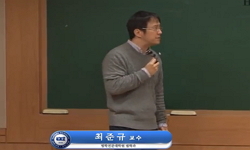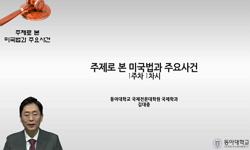Traditional knowledge and genetic resources are newly emerging subject-matter of intellectual property rights. Developed countries such as US, Japan have conducted the contract-based approach to the access and benefit sharing from the traditional kn...
http://chineseinput.net/에서 pinyin(병음)방식으로 중국어를 변환할 수 있습니다.
변환된 중국어를 복사하여 사용하시면 됩니다.
- 中文 을 입력하시려면 zhongwen을 입력하시고 space를누르시면됩니다.
- 北京 을 입력하시려면 beijing을 입력하시고 space를 누르시면 됩니다.
https://www.riss.kr/link?id=A101888212
-
저자
배대헌 (부산대학교)

- 발행기관
- 학술지명
- 권호사항
-
발행연도
2005
-
작성언어
Korean
-
주제어
전통지식 ; 유전자원 ; 출처 공개 ; 특허권 ; 지적재산권 ; 세계지적재산권기구 ; 세계무역기구/무역관련지적재산권협약 ; 도하개발 아젠다 ; 계약법 ; traditional knowledge ; genetic resource ; source-disclosure ; patent ; intellectual property rights ; WlPO ; WTO/TRIPs ; DDA ; contractlaw
-
등재정보
KCI등재
-
자료형태
학술저널
- 발행기관 URL
-
수록면
1-40(40쪽)
- 제공처
-
0
상세조회 -
0
다운로드
부가정보
다국어 초록 (Multilingual Abstract)
Traditional knowledge and genetic resources are newly emerging subject-matter of intellectual property rights. Developed countries such as US, Japan have conducted the contract-based approach to the access and benefit sharing from the traditional knowledge and genetic resources, which accepted with the adoption of Convention Biological Diversity(CBD). Nonetheless, developing countries and less developed countries such as Peru, India, China are not satisfied with CBD and Bonn Directives because of unfair and inequable policy measures on the access and benefit sharing in conjunction with contract systems. They require the new concept of the access and benefit sharing through a source-disclosure requirement in existing patent system. This disclosure requirement is exported to WTO/Doha Development Agenda, WIPO Intergovemment Committee on Traditional Knowledge and Genetic Resources, and WIPO Standing Committee on Patents for Substantive Patent Law Treaty(patent law harmonization). In these multi-forum, the developing countries are expanding their expectation and demands which facilitate better fruits in exchange for traditional knowledge and genetic resources. Albeit their continuous rational justifications, a new disclosure requirement in patent system is just a existing issue, but a vague resolution of the question, to date. This article addresses the legal issues in the traditional knowledge and genetic resources, and then examines the resonable solutions for conflict with the contract-based approach and the new disclosure requirement approach. To determine patent policy and its legislative adaptation remains our assignments. The reasonable protection and sharing policy for traditional knowledge and genetic resources shall be sought in existing Intellectual Property Rights of Korea with a perspective of multilateral works.
목차 (Table of Contents)
- I. 서언
- II. 계약법적 법리에 기한 전통지식 보호 방안
- 1. 생물다양성협약 · 지침에 기한 계약법적 논거
- 2. 새로운 특허법리 모색의 지렛대: WTO/TRIPs와 도하개발 아젠다(DDA)
- 3. 소결
- I. 서언
- II. 계약법적 법리에 기한 전통지식 보호 방안
- 1. 생물다양성협약 · 지침에 기한 계약법적 논거
- 2. 새로운 특허법리 모색의 지렛대: WTO/TRIPs와 도하개발 아젠다(DDA)
- 3. 소결
- III. WIPO 체제 내의 해결방안 모색과 ‘방어적보호방안’의 검토
- 1. 세계지적재산권기구(WIPO) 체제 하에 전통지식의 보호논의
- 2. 특허권에 기한 방어적 보호방안 검토
- IV. 향후 논의의 전망과 우리의 대응방안 모색
- 1. 국제적 논의의 전망
- 2. 전통지식에 관한 우리의 대응방안 검토
- V. 결어
- 참고문헌
- Absttract
동일학술지(권/호) 다른 논문
-
지적재산권 상호간의 경계획정의 원리와 권리충돌 해법의 모색
- 한국지식재산학회
- 김원오
- 2005
- KCI등재
-
- 한국지식재산학회
- 신재호
- 2005
- KCI등재
-
- 한국지식재산학회
- 朴道姬
- 2005
- KCI등재
-
- 한국지식재산학회
- 박영규
- 2005
- KCI등재





 eArticle
eArticle






